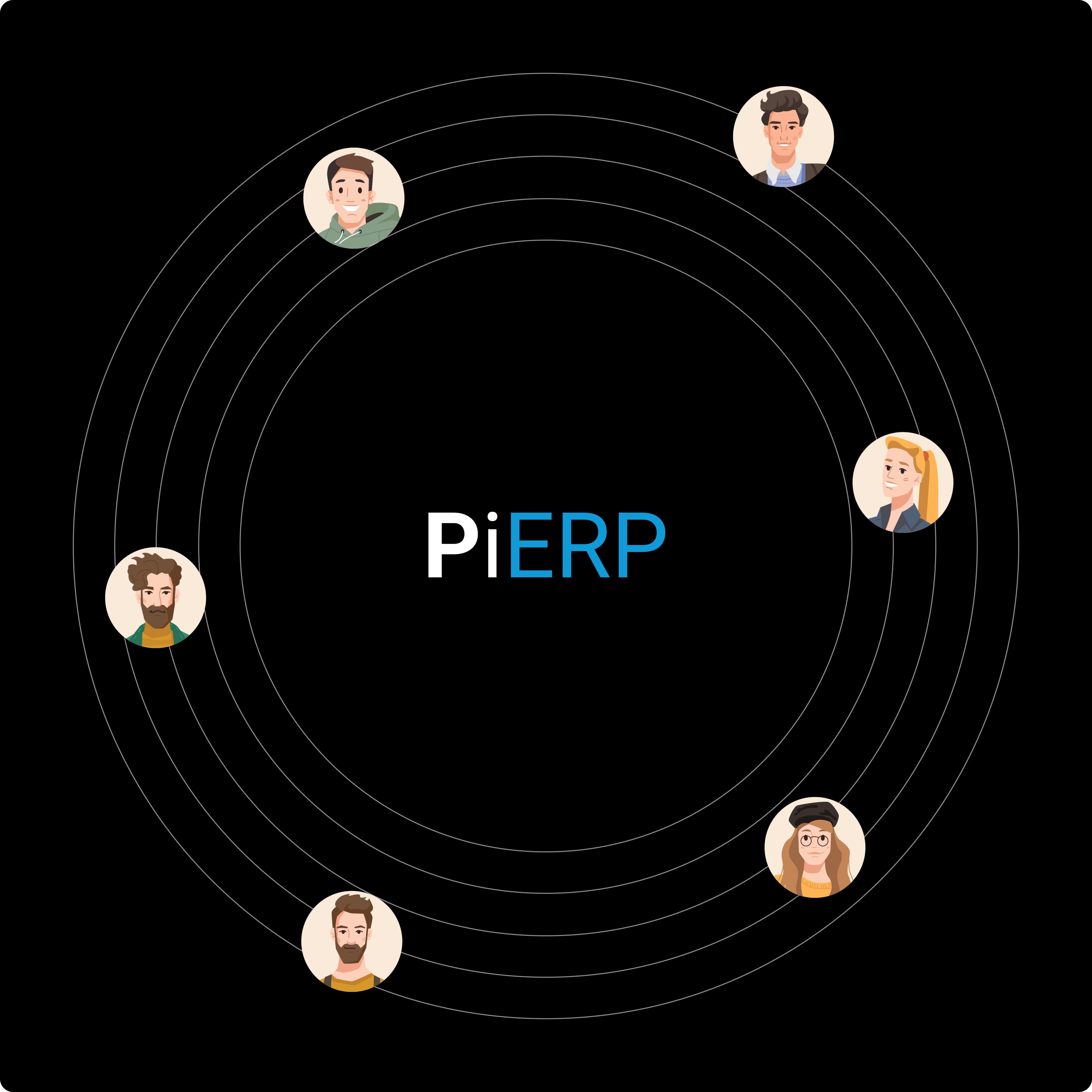In today's busy business world, taking care of employees isn't just morally right, it's also a smart business move. Companies know that happy workers are important for a successful company, so they are using new technology to help them feel better. Enterprise Resource Planning (ERP) systems and Human Resources (HR) modules work together to manage and promote employee wellbeing across the board.
Understanding Employee Wellbeing:
Employee wellbeing is more than just physical health. It's about feeling safe, valued, and happy at work. This means being happy at work, having a supportive team, having chances to grow, and having a good balance between work and personal life. Studies show that when employees feel supported, they're more engaged, productive, and loyal. This ultimately helps the business.
The Role of ERP in Employee Wellbeing:
ERP HR module is the backbone of modern businesses. They bring together different functions, such as finances, supply chains, and customer relationships. ERP systems become powerful tools for managing employee wellbeing when used with HR modules.
Simplified Procedures:
ERP systems can make payroll, benefits, time tracking, and other administrative tasks for employees easier. Employees are happier when they don't have to do as much paperwork. This helps them focus on their main job.
Thinking about data:
ERP systems collect and analyze a lot of information about how well workers are working, feeling happy, and involved. Organizations can use data analytics to identify problems and gain valuable information about how employees feel.
How to use resources effectively:
ERP systems help businesses spend money on initiatives that improve employee well-being. Organizations can make sure that workers have the resources and help they need by making the best use of their budget, staffing levels, and training resources.
Improvements in Interaction and Teamwork:
ERP systems help teams, departments, and employees work together better. ERP systems help people feel like they are part of a group by giving them one place to share information, work together on projects, and ask for help. These elements are crucial for worker well-being.
Leadership of Performance:
ERP systems have tools that help businesses set goals, check how well they're doing, and give feedback to their employees. ERP systems help to create a positive work environment and increase job satisfaction by coordinating individual goals with organizational goals and acknowledging employee accomplishments.
ERP HR Module Help Workplace Health:
ERP systems are designed to manage the different stages of the employee lifecycle, from hiring and onboarding to performance reviews and offboarding. HR modules are important for advancing worker well-being because they:
Getting hired and getting acquainted:
HR modules make the hiring and onboarding process more efficient and make sure that new hires get support and a warm welcome right away. HR modules create a positive work environment by offering resources, training opportunities, and clear expectations.
Feedback and management of performance:
HR modules help organizations set performance goals, keep track of progress, and give periodic employee feedback. HR modules give employees the tools they need to grow and succeed in their jobs.
Learning and preparing:
HR modules support training and development programs that help staff members grow professionally, learn new skills, and reach their full potential. Organizations want their workers to grow and feel good by investing in employee training.
Health Benefits Management:
HR modules oversee the management of employee benefits, such as retirement plans, health insurance, and other benefits. HR modules enhance employees' sense of worth and care by giving them access to extensive benefit packages, which benefits their general well-being.
Planning for Managing the Workforce and Succession:
HR modules help businesses plan their workforce and manage succession, ensuring that they have the right people in place to meet their long-term objectives. Human resources modules facilitate the career advancement and job satisfaction of employees by recognizing potential leaders and cultivating talent pipelines.
Top Techniques for Using ERP and HR Modules to Promote Employee Wellbeing:
Support for Leadership:
The dedication and backing of the leadership are crucial for the accomplishment of employee wellness programs. Leaders ought to set a positive example and actively encourage a culture of wellbeing.
Engagement of Employees:
Involve staff members in the creation and execution of wellness initiatives to guarantee that their needs and preferences are met. Regularly seek feedback and make necessary adjustments to initiatives.
Constant Enhancement:
Metrics like productivity levels, retention rates, and employee satisfaction scores are used to track and assess the success of employee wellbeing programs. Utilize input to make initiatives and programs better over time.
Comprehensive Method:
Adopt a comprehensive strategy for promoting the physical, mental, and emotional well-being of your staff members while also considering work-life balance. To accommodate a variety of needs, provide a range of resources and support services.
Education and Training:
Invest in programs that promote employee skill development, resilience, and adaptability. In order to improve job satisfaction and engagement, offer opportunities for career growth and advancement.
Conclusion:
Taking care of employee wellbeing isn't just a nice thing to do—it's essential for business success. By integrating ERP systems with HR modules, companies can leverage technology to support and enhance their wellbeing initiatives. From simplifying processes to providing insights and fostering a positive culture, ERP and HR systems play a crucial role in creating a happy, engaged, and high-performing workforce.






